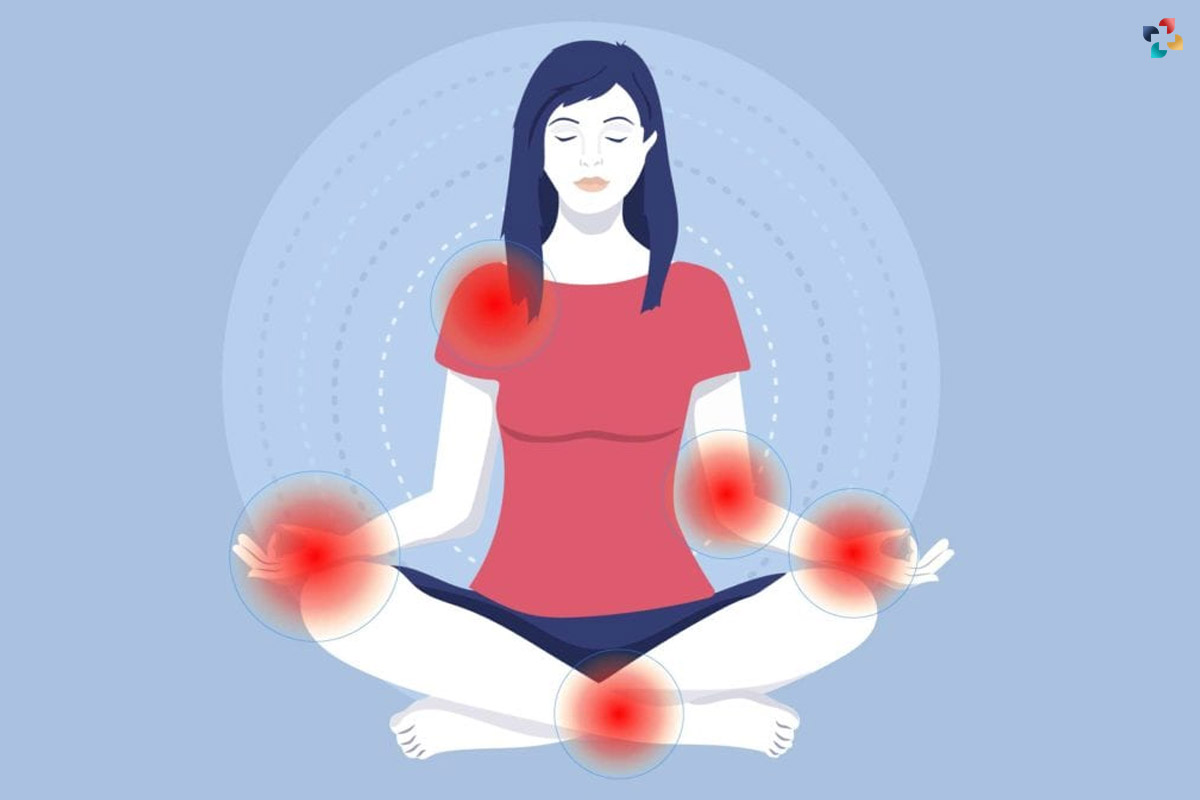Meditation in Holistic Health is a technique that has been used for hundreds of years to enhance health on all levels, including the physical, the mental, and the emotional. To attain a state of relaxation and mental clarity entails concentrating your attention on a certain item, topic, or action in order to bring about this condition. During the last several years, meditation has seen a rise in popularity as a practice that may be used to promote holistic health. We are going to investigate the function that meditation plays in holistic wellness throughout this text.
WHAT IS HOLISTIC HEALTH?
The phrase “holistic health” refers to an approach to medical treatment that treats the patient as a whole, taking into account the patient’s body, mind, and spirit, rather than only treating the symptoms or illnesses that the patient is experiencing. The purpose of holistic medicine is to bring about equilibrium and harmony in every facet of a person’s life by treating the whole person.
THE BENEFITS OF MEDITATION FOR HOLISTIC HEALTH:
It has been shown that there are several advantages of Meditation in Holistic Health. The following is a list of some of the most important ways that meditation may contribute to general well-being:
1. Reduces Stress and Anxiety

The capacity of Meditation in Holistic Health to alleviate feelings of tension and anxiety is among the advantages of this practice that is most widely publicized. Cortisol is a hormone that is produced by our bodies in response to stress. This hormone has the potential to have detrimental impacts on both our physical and mental health. The levels of the stress hormone cortisol may be lowered by the practice of meditation, which in turn induces feelings of serenity and relaxation.
2. Improves Sleep
Moreover, Meditation in Holistic Health has been shown to increase sleep quality, which is critical to one’s health and well-being as a whole. Meditation may help us fall asleep more quickly and remain asleep for longer by enhancing feelings of calm and lowering levels of tension. In addition, it has been shown that regular meditation practice may raise levels of the hormone melatonin, which is responsible for regulating sleep and waking cycles.
3. Enhances Emotional Well-being
Meditation has been shown to improve mental health in several ways, including by increasing emotions of pleasure and satisfaction. We may alleviate emotions of tension and worry by shifting our attention to the here and now, which enables us to let go of concerns about the past or the future. Dopamine and serotonin are neurotransmitters that are related to emotions of pleasure and well-being. Regular meditation practice has been proven to boost levels of both of these neurotransmitters, which is another benefit of meditating regularly.
4. Improves Physical Health

Meditation has been shown to have beneficial impacts on both mental and physical health. Meditation in Holistic Health has been shown to help decrease stress, which in turn may help lower blood pressure and lessen the chance of developing heart disease. In addition, it has been shown that regular meditation practice may increase immunological function and bring about a reduction in inflammation in the body.
5. Enhances Cognitive Function
There is evidence that meditation may improve cognitive function, such as attention, memory, and decision-making. Meditation in Holistic Health has been shown to improve attention and decision-making by lowering stress levels, as well as generating relaxation in its practitioners. In addition, it has been shown that consistent practice of meditation increases the amount of gray matter in the brain, which is connected with one’s cognitive abilities.
TYPES OF MEDITATION
There are many various approaches to meditation, and each one has its own set of advantages that are exclusive to that approach. The following are some of the most widely practiced forms of meditation:
1. Mindfulness Meditation
The practice of mindfulness Meditation in Holistic Health entails directing one’s attention to the here and now, free of judgment or other forms of distraction. It is possible to practice this particular kind of meditation while sitting, laying down, or even while walking or engaging in other types of activity.
2. Transcendental Meditation
In the practice of transcendental meditation, one will repeat a mantra, which may be a word, sound, or phrase, in order to calm the mind and feel more relaxed. The typical session length for this kind of meditation is forty-five minutes, broken up into two sessions each day.
3. Loving-Kindness Meditation
Loving-kindness Meditation requires one to concentrate on loving and compassionate sentiments, not just for oneself but also for other people. This particular kind of Meditation in Holistic Health has been shown to foster sensations of joy, contentment, and overall well-being.
4. Body Scan Meditation

With the practice of body scan meditation, you will calm your mind by concentrating on various areas of your body, one at a time. This will help you become more aware of your body. This specific kind of meditation has been shown to be very beneficial for lowering levels of stress and enhancing levels of relaxation.
BOTTOM LINE
The practice of meditation has been shown to be an effective method for fostering holistic health. Meditation may assist us in achieving balance and harmony in all parts of our life by lowering stress levels, encouraging relaxation, boosting the quality of sleep, enhancing emotional well-being, enhancing physical health, and strengthening cognitive performance. Since there are several forms of meditation, each of which has its own set of advantages that are exclusive to that kind of meditation, it is essential to discover the form of meditation that is most effective for you.
There are many additional activities that may be done to enhance holistic health in addition to the practice of meditation. They include maintaining a good connection with people, having a balanced diet, engaging in regular physical activity, obtaining enough amount of sleep, and finding effective methods to deal with stress. We may reach our full potential in terms of health and happiness if we combine these disciplines.
The practice of meditation plays an important part in holistic wellness on the whole. Meditation has been shown to be an effective method for lowering stress levels, promoting quality of sleep, bolstering mental and emotional health, enhancing physical health, and improving cognitive performance. By making meditation a regular part of our life, we can bring more equilibrium and harmony into every facet of our existence, which is beneficial to our health and well-being on a holistic level.







